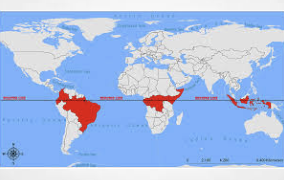December 21, 2020
As we continue to await the Thai Food and Drug Administration (TFDA)’s promulgation of its medical cannabis application guidelines, the Thai Ministry of Public Health (TMoPH) has helpfully issued several notifications to further clarify the 2019 amendment to the Narcotics Act that initially paved the way for cannabis liberalization in the kingdom.
Cannabis (both marijuana and hemp) has been classified as a Category 5 Narcotic since the enactment of the Narcotics Act in 1979. All activities related to the plants and their derivatives had been strictly restricted until the recent rise of the cannabis legalization movement, which began in Thailand with an amendment to the Narcotics Act in February 2019 to legalize medical marijuana. The Thai government has since been working to reclassify cannabis products and lay out the regulatory pathways to accommodate these new “economic plants.” A notification in August 2019 further carved modern drugs, cosmeceuticals, nutraceuticals, cosmetics, and food containing hemp or a certain amount of CBD out of the scope of Narcotics Act.
The most recent TMoPH Notification was published in the Government Gazette on December 14, 2020, and has expanded the delisting of cannabis from the Narcotics Act to include nearly all parts of the cannabis plant, as set out below.
| Type of Plant | Detailed Components |
| Marijuana
(plants in the cannabis family) |
Stalks, stems, fibers, branches, roots, leaves without the tip and inflorescence, extracts comprising CBD with less than 0.2% THC by weight. |
| Hemp | Stalks, stems, fibers, branches, roots, seeds, seed oils, seed extracts, leaves without the tip and inflorescence, extracts comprising CBD with less than 0.2% THC by weight, and residues from extraction with less than 0.2% THC by weight. |
The Narcotics Act and its notifications must be reviewed carefully by anyone seeking to take part in his industry, and items that are conspicuous by their absence must be well noted and carefully avoided. For example, while the above component parts of cannabis and hemp no longer fall within the definition of narcotics under the Narcotics Act, marijuana seeds, buds, leaves and cannabis inflorescence (the complete flower head) remain listed as narcotics.
More importantly, the exemption only applies to cannabis cultivated locally in Thailand, and foreign participants are effectively precluded from any direct participation in an approved cannabis business until February 20, 2024—effectively a five year freeze-out period for foreigners. This means that only the Thai government and its partners have standing for a commercial license, but a non-commercial license (e.g., for research and development) may be issued to other Thai applicants.
Despite these limitations, the latest notification is another milestone for driving cannabis research, development and industry in Thailand.
In addition, the most recent notification delisted other plants as Category 5 Narcotics, including kratom plants such as Mitragyna speciosa (Korth.) Havil; opium plants such as Papaver somniferum L. and Papaver bracteatum Lindl.; and fungi of the species Psilocybe cubensis, which contain psilocybin or psilocin. Further notifications on these substances are also expected in due course.
While Tuesday’s TMoPH Notification is useful in terms of continued guidance from the Thai Government regarding this increasingly important industry, we are still awaiting the Thai FDA’s final promulgation of its own application pathway. However, this continued liberalization of the restrictions on substances formerly deemed narcotic is another strong indication of Thailand’s push to expand their medicinal and therapeutic applications in line with promising pharmacological developments.
For more information on medical cannabis and the decriminalization of other narcotics for medical purpsoes in Thailand, please contact Tilleke & Gibbins’ Bangkok office at [email protected] or +66 2056 5555.


















